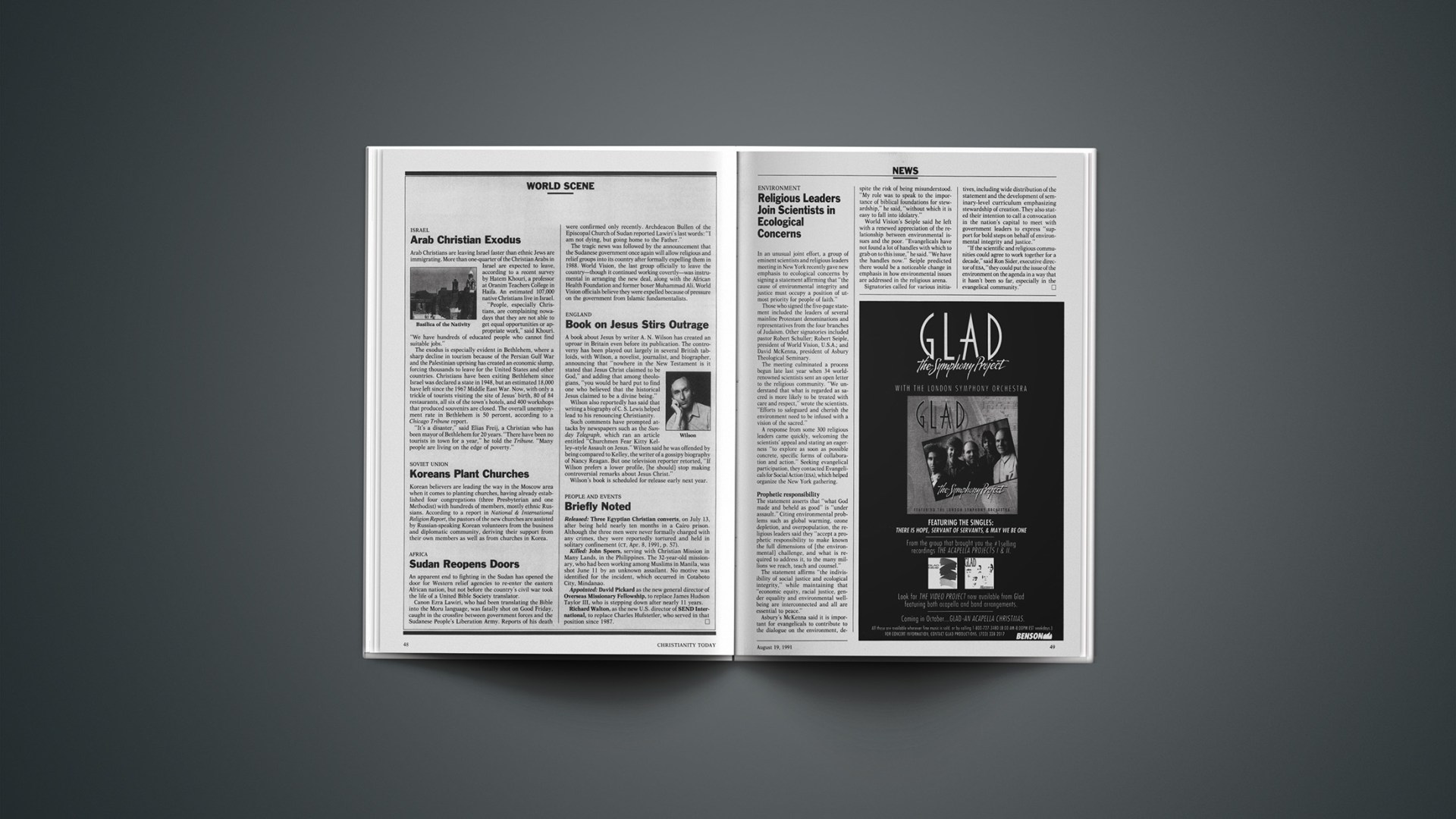In an unusual joint effort, a group of eminent scientists and religious leaders meeting in New York recently gave new emphasis to ecological concerns by signing a statement affirming that “the cause of environmental integrity and justice must occupy a position of utmost priority for people of faith.”
Those who signed the five-page statement included the leaders of several mainline Protestant denominations and representatives from the four branches of Judaism. Other signatories included pastor Robert Schuller; Robert Seiple, president of World Vision, U.S.A.; and David McKenna, president of Asbury Theological Seminary.
The meeting culminated a process begun late last year when 34 world-renowned scientists sent an open letter to the religious community. “We understand that what is regarded as sacred is more likely to be treated with care and respect,” wrote the scientists. “Efforts to safeguard and cherish the environment need to be infused with a vision of the sacred.”
A response from some 300 religious leaders came quickly, welcoming the scientists’ appeal and stating an eagerness “to explore as soon as possible concrete, specific forms of collaboration and action.” Seeking evangelical participation, they contacted Evangelicals for Social Action (ESA), which helped organize the New York gathering.
Prophetic Responsibility
The statement asserts that “what God made and beheld as good” is “under assault.” Citing environmental problems such as global warming, ozone depletion, and overpopulation, the religious leaders said they “accept a prophetic responsibility to make known the full dimensions of [the environmental] challenge, and what is required to address it, to the many millions we reach, teach and counsel.”
The statement affirms “the indivisibility of social justice and ecological integrity,” while maintaining that “economic equity, racial justice, gender equality and environmental well-being are interconnected and all are essential to peace.”
Asbury’s McKenna said it is important for evangelicals to contribute to the dialogue on the environment, despite the risk of being misunderstood. “My role was to speak to the importance of biblical foundations for stewardship,” he said, “without which it is easy to fall into idolatry.”
World Vision’s Seiple said he left with a renewed appreciation of the relationship between environmental issues and the poor. “Evangelicals have not found a lot of handles with which to grab on to this issue,” he said. “We have the handles now.” Seiple predicted there would be a noticeable change in emphasis in how environmental issues are addressed in the religious arena.
Signatories called for various initiatives, including wide distribution of the statement and the development of seminary-level curriculum emphasizing stewardship of creation. They also stated their intention to call a convocation in the nation’s capital to meet with government leaders to express “support for bold steps on behalf of environmental integrity and justice.”
“If the scientific and religious communities could agree to work together for a decade,” said Ron Sider, executive director of ESA, “they could put the issue of the environment on the agenda in a way that it hasn’t been so far, especially in the evangelical community.”










